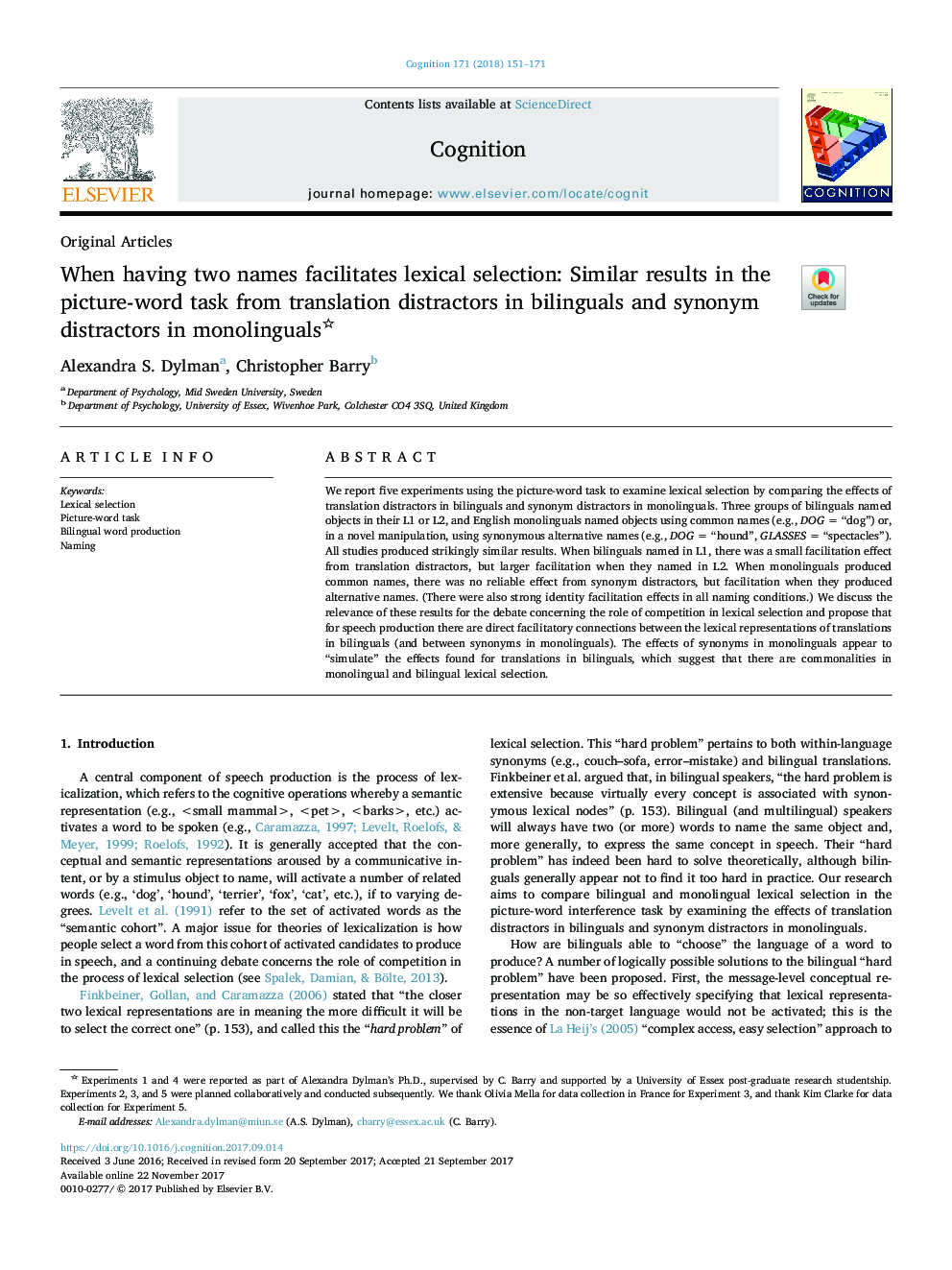| Article ID | Journal | Published Year | Pages | File Type |
|---|---|---|---|---|
| 7285624 | Cognition | 2018 | 21 Pages |
Abstract
We report five experiments using the picture-word task to examine lexical selection by comparing the effects of translation distractors in bilinguals and synonym distractors in monolinguals. Three groups of bilinguals named objects in their L1 or L2, and English monolinguals named objects using common names (e.g., DOGÂ =Â “dog”) or, in a novel manipulation, using synonymous alternative names (e.g., DOGÂ =Â “hound”, GLASSESÂ =Â “spectacles”). All studies produced strikingly similar results. When bilinguals named in L1, there was a small facilitation effect from translation distractors, but larger facilitation when they named in L2. When monolinguals produced common names, there was no reliable effect from synonym distractors, but facilitation when they produced alternative names. (There were also strong identity facilitation effects in all naming conditions.) We discuss the relevance of these results for the debate concerning the role of competition in lexical selection and propose that for speech production there are direct facilitatory connections between the lexical representations of translations in bilinguals (and between synonyms in monolinguals). The effects of synonyms in monolinguals appear to “simulate” the effects found for translations in bilinguals, which suggest that there are commonalities in monolingual and bilingual lexical selection.
Keywords
Related Topics
Life Sciences
Neuroscience
Cognitive Neuroscience
Authors
Alexandra S. Dylman, Christopher Barry,
